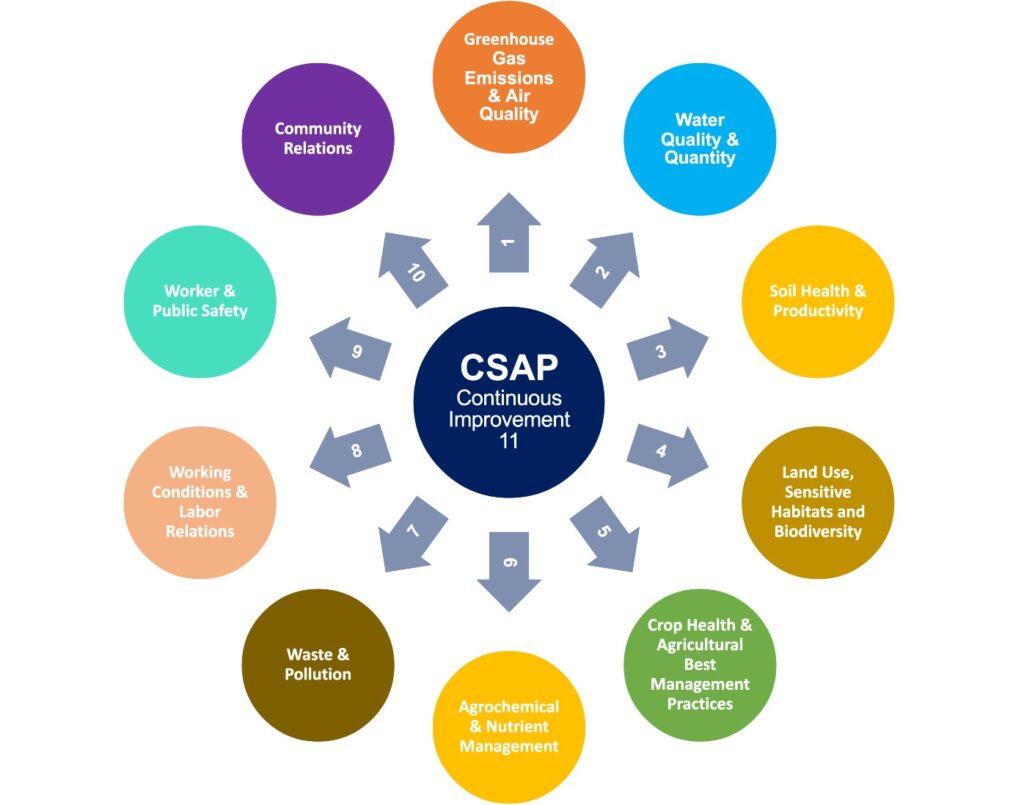CSAP
The U.S. Corn Sustainability Assurance Protocol (CSAP) offers international corn buyers and export markets insights into U.S. corn production sustainability practices and outlines U.S. state and federal laws that provide assurances that these practices are being implemented, where required, throughout the country.
The CSAP is organized into 11 impact categories that benchmark the sustainability standards used for other crops. These categories align with the eight critical environmental outcomes that Field to Market calculates as indicators of sustainable agriculture in the 2021 National Indicators Report: biodiversity, energy use, greenhouse gas emissions, irrigation water use, land use, soil carbon, soil conservation and water quality.

A new tool
The CSAP offers international corn buyers and export markets insights into the sustainability of U.S. corn production practices and regulations

Farmer-driven
The CSAP was initiated within a farmer-led working group inside the Council, to let the world know about the sustainability of U.S. corn production practices

Export-focused
The CSAP helps corn exporters to address disclosure requirements and sustainability procurement guidelines in international markets, for stakeholders that may not be familiar with the regulatory framework or production practices of U.S. corn production.

Continuously evolving
The CSAP compiles the best practices and regulations that U.S. corn producers adhere to, reflecting a baseline of sustainable production practices. It can evolve as farmers continue to adopt and leverage new technologies and tools for production.
After completing SAI Platform’s Farm Sustainability Assessment (FSA) benchmarking process, CSAP Version 1.1 achieved Gold Level Equivalence, which means that buyers of U.S. corn and corn product can provide additional assurance of the sustainability of their U.S. corn purchases to comply with their sourcing policies and international stakeholder requirements
